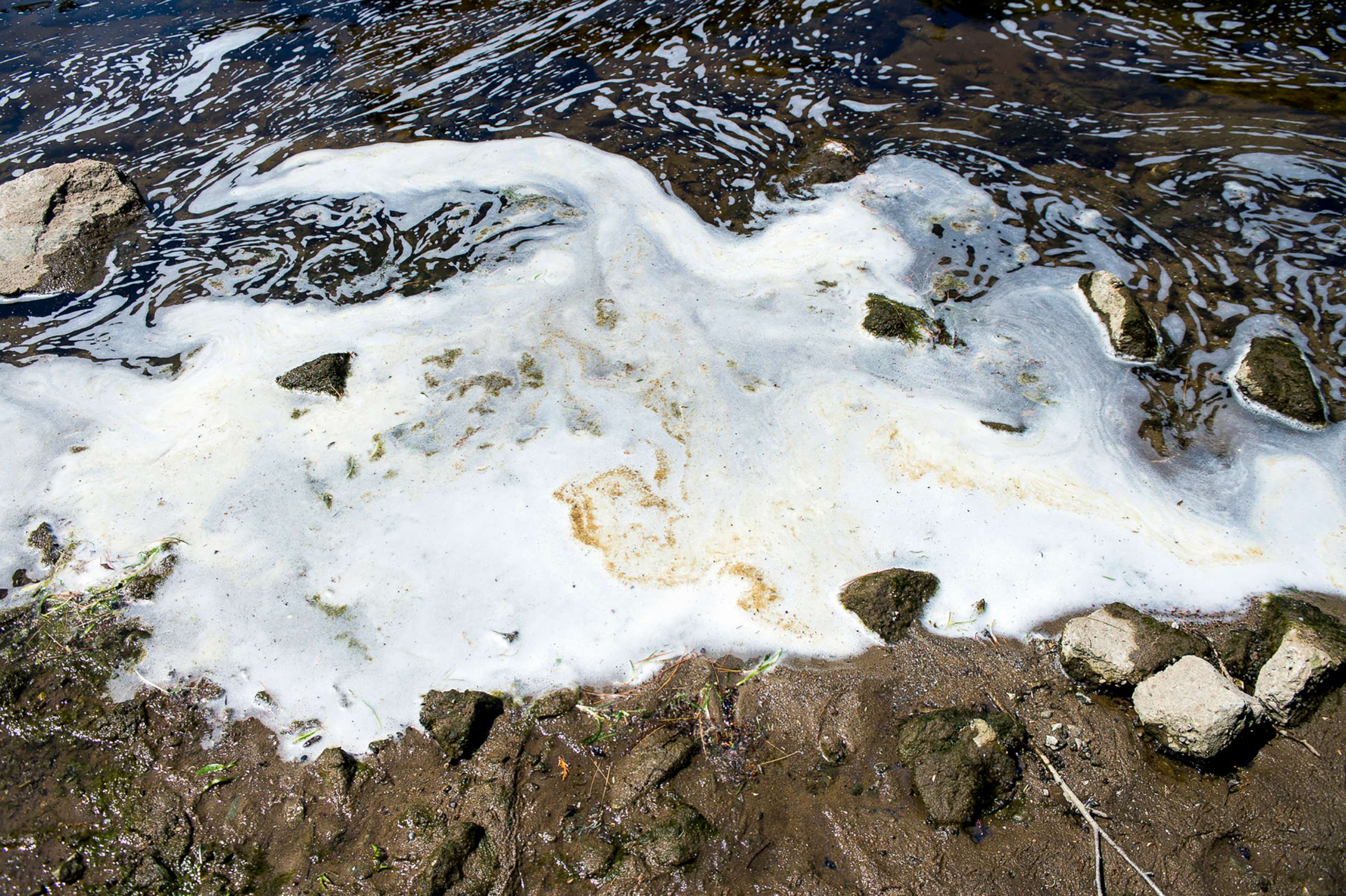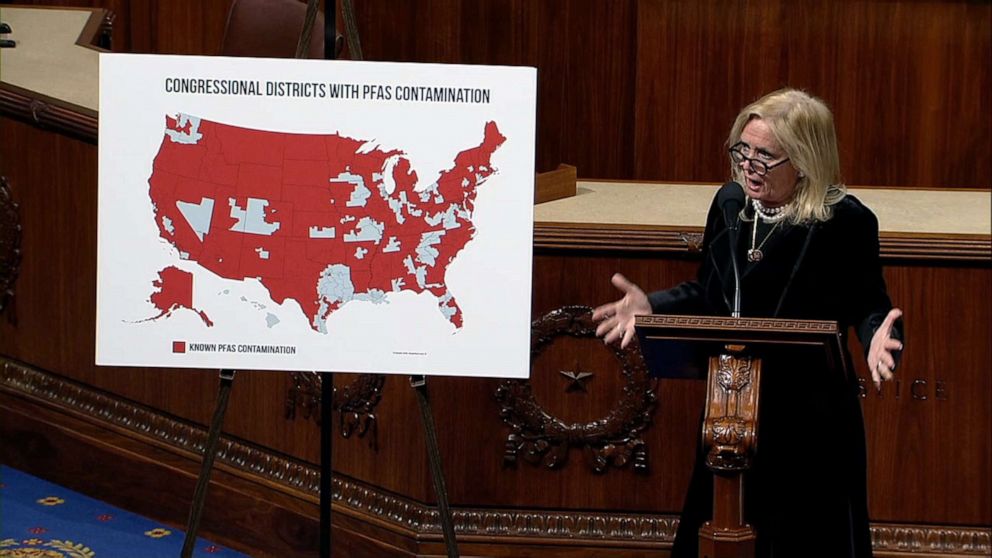House passes bill to force EPA regulation of 'forever chemicals' linked to health concerns
The chemicals have been found in water systems around the country.
The House passed a bill on Friday that will require the Environmental Protection Agency to act to limit Americans’ exposure to chemicals connected to health problems amid a growing concern about the quality of drinking water around the country.
The bill would require the EPA to set clearer drinking water standards and declare some types of per- and polyfluoroalkyl (PFAS) chemicals -- commonly known as “forever chemicals” -- as hazardous in one year, which would require cleanups at potentially hundreds of new Superfund sites around the country. It would also require the agency to set a maximum limit of the chemicals allowed in sources of drinking water.
These man-made chemicals are so common that the Centers for Disease Control and Prevention said almost all Americans have a measurable amount of the most well-known types in their blood.
Two specific, older types of these chemicals, called PFOS and PFOA, are known as “forever chemicals” because they take so long to break down in the environment after they are released from industrial sources ranging from the firefighting foam used at airstrips and on military bases to waterproof or nonstick products, such as stain repellent, cleaning products or food packaging.

An agency within the CDC that evaluates human health risks released a report last year that found PFOS and PFOA chemicals caused health effects in rodents at even lower levels than the EPA's recommended health limit -- this included an increased risk of some cancers, interfering with hormones and the immune system, and growth and developmental impacts on children and infants.
The Environmental Working Group, an advocacy group that pushes to limit exposure to chemicals, has found that water data shows as many as 16 million Americans could be exposed through their drinking water to levels of these chemicals that are well above the EPA's recommended health limit.
Many of the sites where contamination is in the groundwater or in drinking water lower than the EPA’s recommended health limit have faced challenges getting help to clean up the chemicals because currently there are no federal guidance or requirements on when it has to be cleaned up and who will pay for it.
The EPA said it is “aggressively addressing” the chemicals but has already missed deadlines announced as part of its action plan to address the chemicals.
EPA chief Andrew Wheeler has previously told ABC News the agency has concerns about bills that could force action on the entire class of chemicals, saying it could force water systems to spend money testing for and addressing the chemicals even if they have more pressing concerns.
Lawmakers from Michigan, where the state has been aggressively testing water quality since the Flint crisis, have also tried to add provisions on the chemicals to the National Defense Authorization Act and the spending bill -- but the measures were ultimately dropped.

Rep. Debbie Dingell, who introduced the bill, gave a strong speech on the lack of action around these chemicals during debate over the bill, standing next to a map that shows the vast majority of congressional districts have some kind of contamination identified.
“Did the Flint water crisis not teach us in this Congress and the country something? I hope and urge, I thank all of my colleagues that have worked on this issue," Dingell said in debate this week. "When you know the facts, I don’t understand how anybody can let American people be poisoned and it’s time for us to act."
But the future of the bill is unclear, as Senate leaders and the White House have said they don’t support it.
Sen. John Barrasso, chairman of the Environment and Public Works Committee, told Bloomberg Environment it has “no prospects” in the Senate. The White House has also threatened to veto the bill.
House Democrats blocked two previous Senate efforts to require EPA to set a drinking water standard for the chemicals. In response, a spokesman for Barrasso's office said they don't plan to take up the new bill.
A House Energy and Commerce Committee staffer said the language in the bill passed Friday specifically includes a requirement that drinking water standards protect vulnerable populations, which the EPA could define as pregnant women or children, for example. She said the bills supported by Senate Republicans don't include that language.
"This is no time for partisan posturing," Energy and Commerce committee chairman Rep. Frank Pallone said in a statement, urging the Senate to take up the bill.
While the House vote was largely along party lines, 24 Republicans did vote in favor of the bill.




